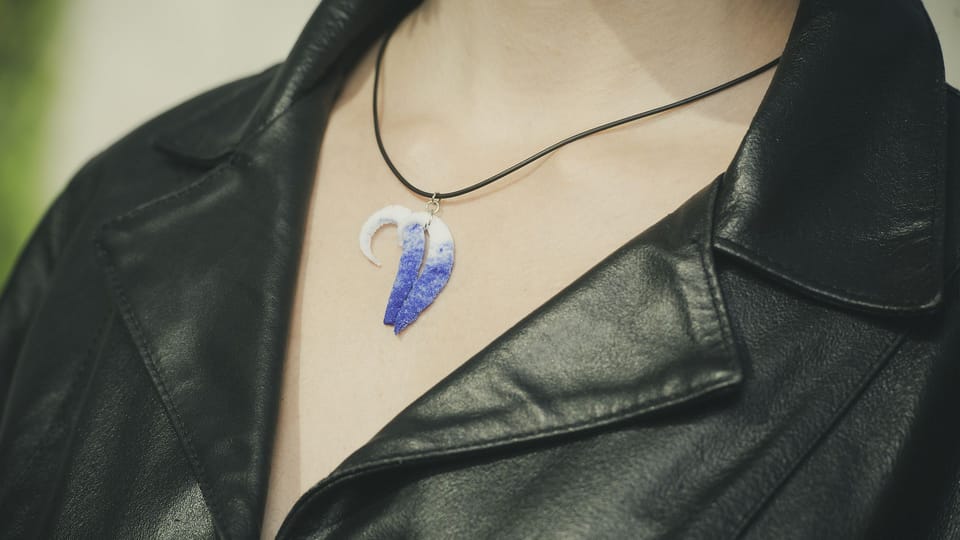Czech researchers develop revolutionary new material for interior design
Czech researchers at the Technical University of Liberec have developed a new material that could find multiple uses in interior design and various artistic fields such as the creation of perfumed jewelry. The new glass-ceramic porous material called Porous Glass Plasticine (PGP) will have its world premiere at the international glass fair glasstec in Düsseldorf later this month.
The material called Porous Glass Plasticine - was created by a team of researchers at the Department of Glass Machinery and Robotics of the Faculty of Engineering of the Technical University of Liberec, which has over 60 years of experience in the glass industry.
Vlastimil Hotař spearheaded the project.
“The material itself is not hard to make. The secret lies in mixing the different components in the right order and the right proportion. What is special about glass plasticine is that, unlike similar materials such as foam glass, it has open pores that give it exceptional qualities. It can be used to make perfumed jewelry, for micro-particle filters or nanoparticle carriers.”
The glass-ceramic porous foam is lightweight and translucent. It can absorb moisture or fluids, has excellent sound absorbing qualities making it ideal for walls or glass partitions in interior design, it can contain luminary particles for special effects, and it is easy to shape and process with conventional tools but can also be used as material for 3D printers.
The substance is expected to bring flexible and tailor-made solutions in the field of interior design. It will open up huge potential in the creation of walls, partitions or art objects of any shape and colour that could be infused with perfume or serve to hold and grow plants.
Vlastimil Hotař says researchers at the university are already testing its potential use in hydroponics.
“We are growing tomato seedlings in the substance here in our lab. In making the substance we can influence the size of the pores and plants could draw water and nutrients directly from it. We want to see how well it could be used in hydroponic systems.”
The porous glass plasticine can also serve in the production of air dehumidifiers and fluid absorbers.
It is non-toxic, non-flammable, environmentally friendly and can be produced from recycled raw materials.
Researchers are still testing its potential uses and looking for partners who will help get it on the market.
For more information on Porous Glass Plasticine contact the Liberec team at: info@baked.glass














